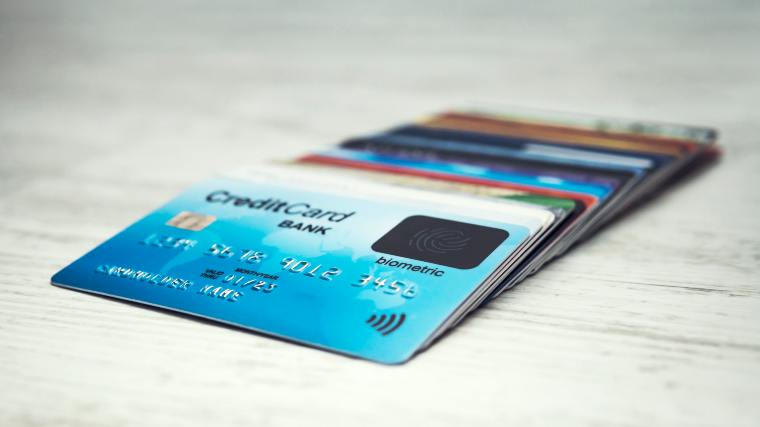5 Store Credit Cards You Should Always Avoid

You get the pitch every time you hit the checkout line with a big purchase in tow:
“Would you like to apply for our store credit card? You can save ____ on today’s purchase.”
Retailers love to sign customers up for their special, branded credit cards. For one, it’s like buying advertising space in your wallet. Every time you reach for your ID or another card you see their name and logo.
Also, most store credit cards come with some sort of incentive that’s designed to drive you back to that retailer to keep shopping. Why shop somewhere else when you can earn points or rewards just by being loyal to one retailer?
In some instances, a store card may benefit you and your shopping habits. But there are some store cards you need to watch out for. In fact, there are five specific kinds of branded credit card you should pass on every time.
The Too High APR Card
The application standards for store credit cards are usually a little lower than they are for regular, general use cards. This is why store or gas cards are often good starter cards for someone without a credit history.
The trade-off for the slightly lower standards is that the interest rate on these cards can be high. Once you’re out of the introductory period, the average APR for store cards is 26.01 percent, which is nearly 5 percent higher than the overall average for consumer credit cards.
If you’ve already established your credit and plan on carrying a balance, you’d be better off putting that purchase on a card with a better interest rate.
The Ultra-Low Credit Limit Card
In addition to a high interest rate, store cards also often come with low credit limits. This might not be a problem if you make small purchases and continuously pay off the balance. If you aren’t able to keep the balance in check, however, and you start approaching or exceeding the limit, that low limit is going to be a problem.
First, keeping a balance at or near the limit of your card can damage your credit score. Part of your score is based on the percentage of available credit you’re currently using. Ideally, you should try to avoid utilizing more than 50 percent of the available limit.
Also, going over the limit on a card usually incurs fees, which just makes getting the balance back down even harder.
The Bad Perks/No Perks Card
The biggest perk on a retail card is almost always the first one. Deferred interest. Cash back. Steep savings. These offers give you an immediate benefit, which is what makes them so tempting. If you can save 10 percent on a new high definition, flat screen TV right now, that might feel more valuable than paying less interest over time, even if it actually isn’t.
In what ways will the card benefit you going forward? According to a survey from CreditCards.com, about one in every three retail cards offers a rewards program that extends beyond the initial purchase, but those programs are constantly changing, and usually not for the better. If those perks don’t really benefit you, then pick a card that better supports your spending habits and financial goals.
The Use Once and Forget It Card
There are a number of reasons why it’s risky to keep opening more and more credit cards. Logistically, it can be difficult to keep track of all your payments and due dates when you have an overabundance of open accounts. There’s also the possibility that having so much available credit could lead you to make some potentially damaging spending choices.
On top of that, there’s the very real impact on your credit score. One of the factors in your score is the age of your accounts. The older your accounts the better that is for your score. Every time you open a new card your score usually dips because the average age of your accounts goes down. Also, if you never use a card, eventually the creditor may close the account, which can also hurt your score.
If you’re offered a card that you know you’ll never use again, it’s probably best to pass.
The Gateway to Unnecessary Purchases Card
The biggest danger with special, branded cards is when they change the way you spend, prompting you to buy things you wouldn’t otherwise buy.
If you’re going to open a store card, it should only be used to augment your existing spending plan. When you start buying things specifically because you have the card you’ve got a problem in the making. Remember, that’s the whole reason these cards exist in the first place – to get you spend more with that retailer than you normally would.
Any credit card you open should support your financial goals and offer the best terms and conditions available. Sometimes that means forgoing store cards with immediate, one-time benefits in favor of cards with better overall terms. The key is always to find the products that work best for you.
If you've got a few more credit cards in your wallet than you can reasonably handle, consider connecting with a credit counselor. They can give you specific advice for repaying debt and making the most of your monthly budget.
Article updated August 2020
















